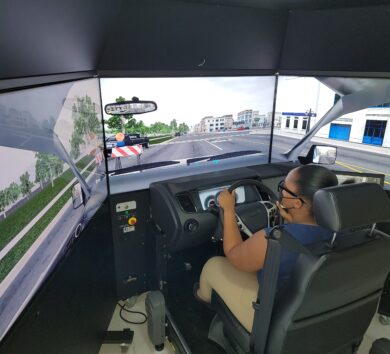
Google on Tuesday unveiled a range of product features and expansions that utilise artificial intelligence(AI), aimed at assisting individuals, city planners, and policymakers with reducing transportation and energy emissions.
Kate Brandt, chief sustainability officer at Google, emphasised the need for systemic, global action to combat climate change, acknowledging the daunting scale of the challenge.
One of Google’s notable contributions to reducing transportation emissions is Project Green Light, a product that utilises artificial intelligence (AI) to assist city traffic engineers in optimising traffic lights at intersections, thus improving traffic flow and reducing emissions. Currently in 12 cities across four continents, early numbers from Project Green Light indicate the potential to reduce stops by up to 30 per cent and reduce emissions at intersections by up to 10 per cent. By streamlining traffic, cities can make cost-effective upgrades to existing infrastructure, resulting in fewer stops at red lights.
The company has plans to roll out Green Light to more cities globally next year.

Google will also introduce fuel-efficient routing in Google Maps to more areas and extend the offering to two-wheeled vehicles. Fuel-efficient routing employs AI to suggest routes that minimise inclines, traffic congestion, and variations in speed while maintaining similar estimated arrival times. Since its launch in October 2021, this feature is estimated to have prevented over 2.4 million metric tons of CO2e emissions, equivalent to taking approximately 500,000 fuel-based cars off the road for a year.
Google is also enhancing its search capabilities for electric vehicles (EVs). Global EV-related searches have nearly doubled over the past two years and now when searching for terms like “best electric cars” in the U.S., users can now quickly compare prices, battery range, and discover available government incentives. Similar features will soon be available for German and French national incentives.
Additionally, Google is introducing an updated Fuel Cost Calculator for electric and fuel-based cars, to help helping drivers understand the cost of charging compared to traditional refuelling along with a new battery range explorer to enable users to determine how far they can travel on a single charge for a specific model.
This feature will debut in the U.S. in the coming weeks and in Europe early next year.

Google Research has collaborated with American Airlines and Breakthrough Energy, and together, they have harnessed AI and extensive data to predict and avoid the formation of contrails, – the thin, white lines that sometimes appear behind aircraft, which account for approximately 35 per cent of aviation’s global warming impact.
Carl Elkin, staff software engineer of Applied Science at Google, said: “A group of pilots at American flew 70 test flights over six months while using Google’s AI-based predictions, cross-referenced with Breakthrough Energy’s open-source contrail models, to avoid altitudes that are likely to create contrails. After these test flights, we analysed satellite imagery and found that the pilots were able to reduce contrails by 54 per cent. This is the first proof point that commercial flights can verifiably avoid contrails and thereby reduce their climate impact.”







Comments